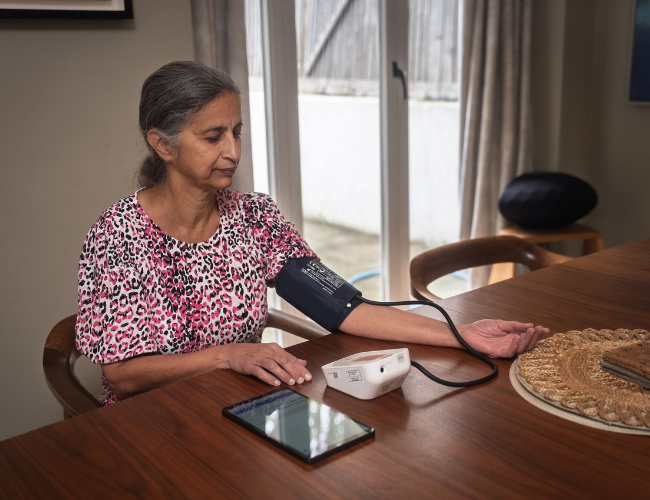The wall-mounted device, produced by a small Cambridge-based start-up company called Heartfelt Technologies, detects a build-up of fluid in the feet and ankles called oedema, which is one of the ‘big three' signs heart failure is becoming severe.
The device is typically installed beside someone's bed, where it scans their bare feet and lower leg. This is done automatically, and continuously, without requiring any involvement from the patient. The foot scanner simply needs to be plugged into the mains, and records real-time images automatically. It can work without Wi-Fi, for older people without internet access.
The scanner could deliver an alert 13 days before a person would end up in hospital, according to new research supported by the NIHR.
The device, which takes 1,800 pictures a minute, images the foot and lower leg at multiple angles using AI detection of their precise position, then calculates the volume of fluid they contain.
Dr Philip Keeling, senior author of the study and a consultant cardiologist at Torbay and South Devon NHS Foundation Trust, said: ‘This device detects one of the big three warning signs for people with heart failure before they end up in hospital.
‘Only about half of people admitted to hospital with heart failure currently get assigned an early review by a heart failure nurse who can check to see if they are suffering a harmful build-up of fluid because their heart is not working properly.
‘Amid a shortage of heart failure nurses, a device like this can be like a virtual nurse, tracking people's health.'
In The FOOT study the scanner accurately predicted five out of the six hospitalisations that occurred among participants. At the end of the six-month study, 82% of remaining study volunteers living at home – 18 out of 22 – chose to keep the device.
The researchers now plan to test the Heartfelt device, which can even scan feet through thin socks, on a larger cohort of patients.
So far it can accurately detect one person's feet and lower legs out of a group of 100 people's feet, but it may have identification issues if more people walk past, as would happen in larger residential homes.



